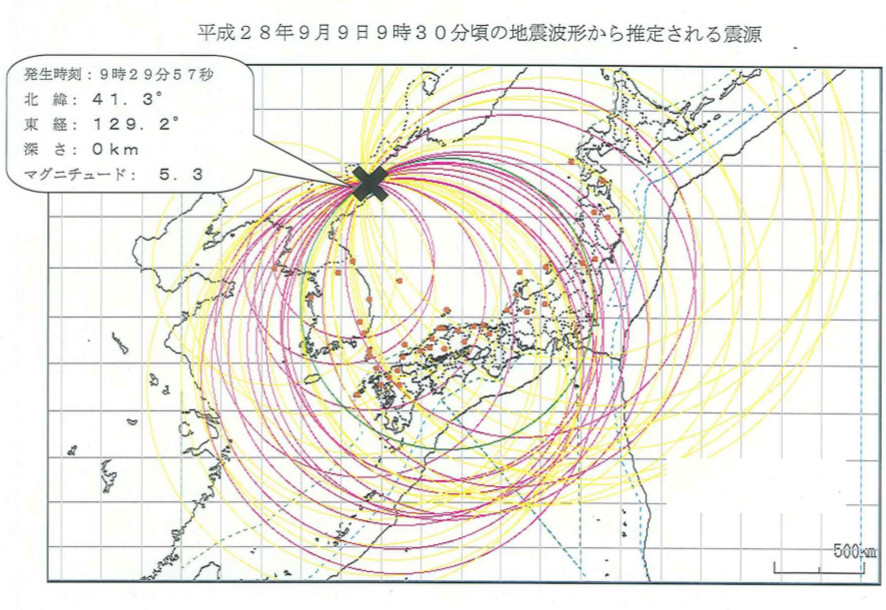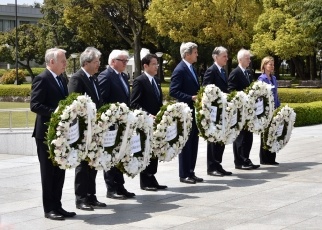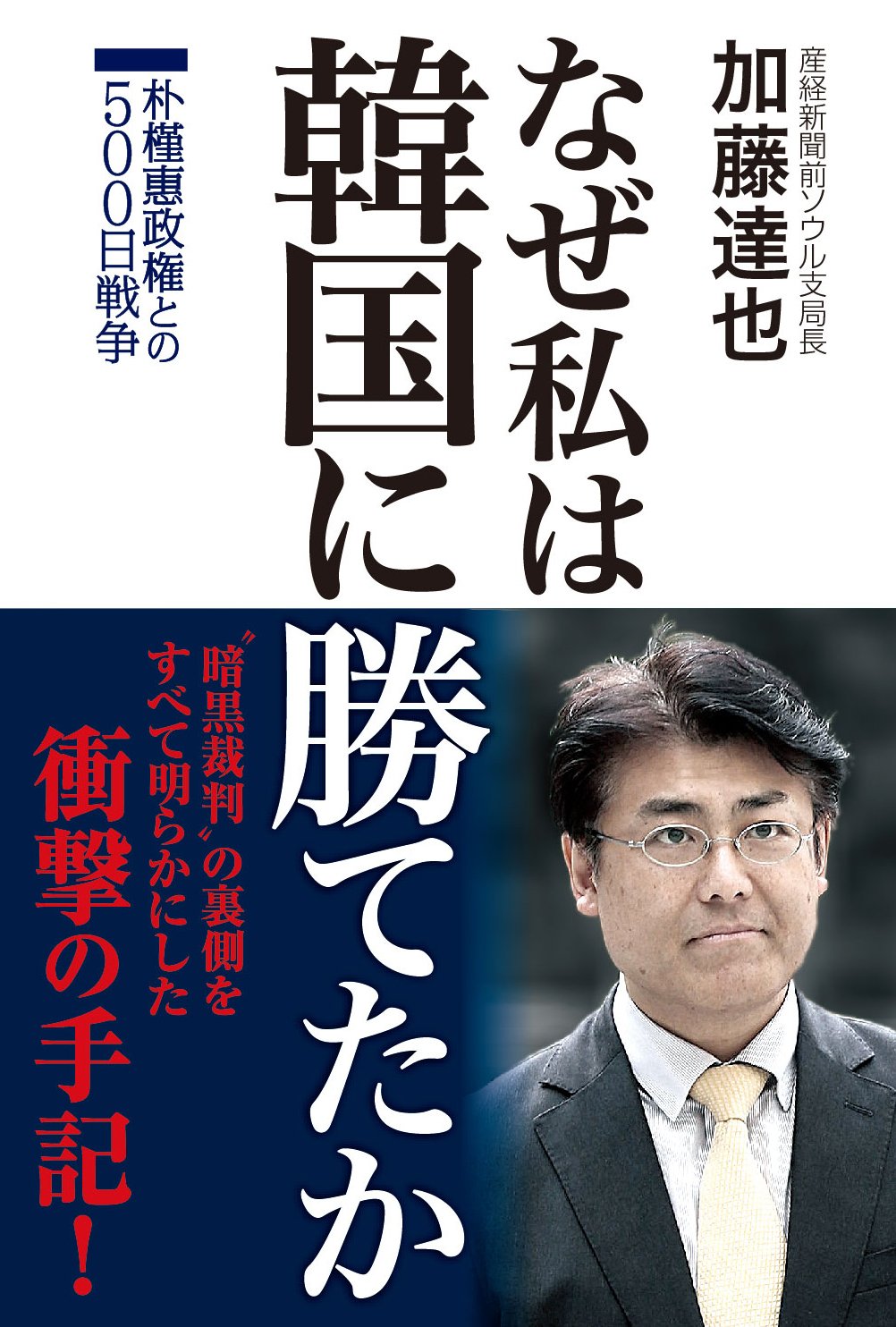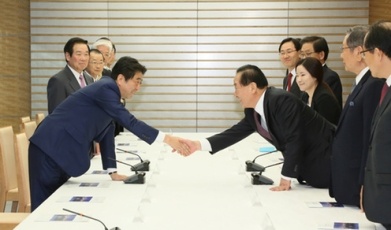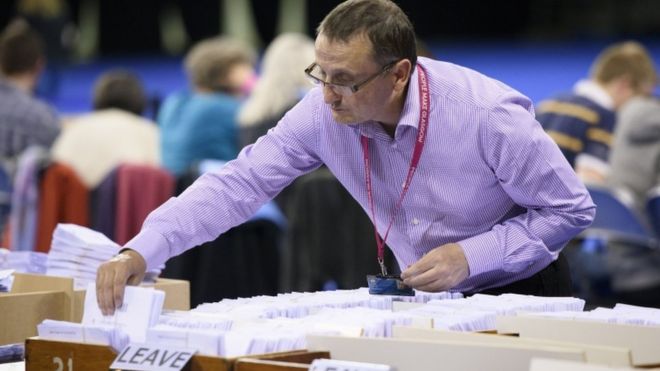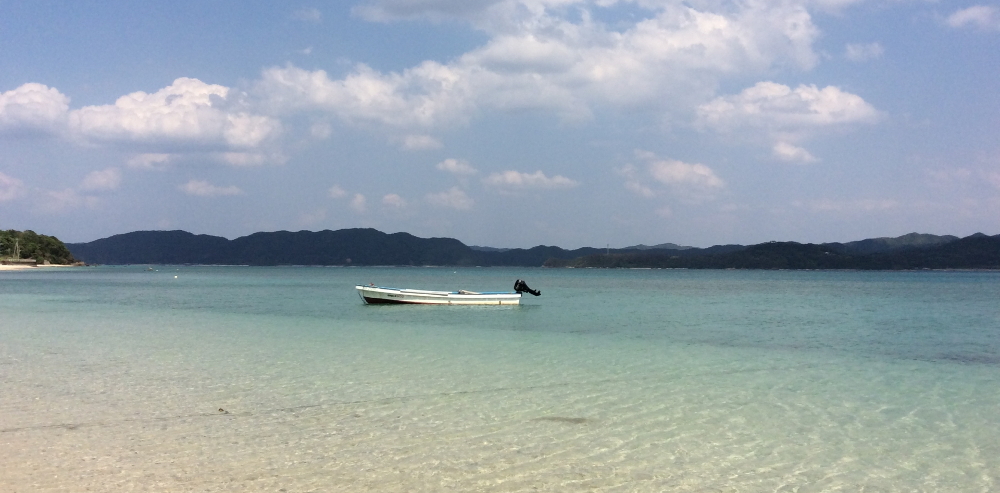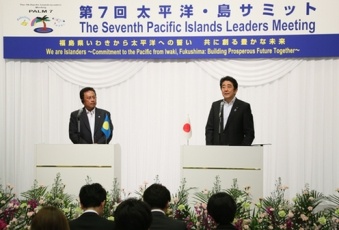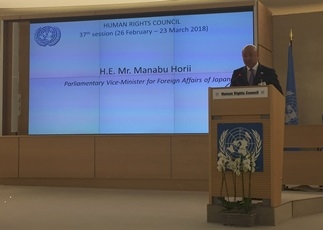
【慰安婦問題】国連で日本政府が初めて真実を説明<全文>堀井学外務大臣政務官
ページに広告が含まれる場合があります。
2018年2月27日、国連欧州本部で開かれた女子差別撤廃委員会の対日審査で、日本が慰安婦問題に関する事実関係を説明した。
日本政府として国連の場で事実関係を説明するのは「初めて」のことだ。
該当箇所だけを読みたい方は、こちら をクリックするとスクロールします。
第37回人権理事会ハイレベルセグメント

堀井学外務大臣政務官によるステートメント
平成30年2月27日
人権理事会議長,ゼイド高等弁務官,ご列席の皆様,
日本国政府を代表して,人権理事会でステートメントを行う機会を得たことを大変光栄に思います。まず,昨年11月のUPR(ユーピーアール)日本審査において,多くの国から日本の人権分野の取組に対する前向きな評価や建設的なご意見を頂いたことに感謝いたします。
議長,
本年は記念すべき世界人権宣言採択70周年です。日本は,戦後一貫して,同宣言で唱われた自由や人権といった高い理想を掲げながら,法の支配に基づく自由で開かれた社会の実現に向けて国内外の施策に取り組んでまいりました。
その一方,国際社会においては,紛争の長期化・複雑化,テロ・暴力的過激主義の台頭,難民の大量発生等が存在し,自由や基本的人権といった基本的な価値が挑戦を受けています。こうした価値を維持し,促進していくためには,多大な努力が必要です。日本政府も,人権理事会等国際社会における議論のリード,SDGsの達成を視野に入れた国際ルールに基づく開発支援,各種制度構築を含む技術協力等を通じて,弛まぬ努力を進めてまいります。
議長,
日本は,アジア出身の人権理事会理事国として,地域における人権の保護・促進に積極的に取り組んで参りました。同地域では,めざましい経済発展や着実な民主化の進展が見られるものの,自国民の基本的な自由と民主主義の抑圧・弾圧,人権擁護者の抑圧などの問題が依然として存在しています。
日本は,国際社会との意味のある関与を拒否し,深刻な人権侵害を継続する国・地域に対しては,関係国と協力しながら,強く政策の是正を求めていく考えです。一方で,持続的な真の改善をもたらすためには,どのようなアプローチが最も効果的か,包括的・総合的に検討することも重要です。
ミャンマーのラカイン州情勢について,日本は,その人権・人道上の懸念や国際社会との協力の重要性について,あらゆるレベルでミャンマー政府に伝えてきています。また,状況改善及び問題の持続可能な解決に向けたミャンマー政府の取組を後押しするため,ミャンマー及びバングラデシュへの人道支援に加えて,ラカイン州の抱える課題は複雑であり中長期的な支援が必要との観点から,避難民の帰還・再定住や,ラカイン州の発展のための支援を含むコミュニティ間の融和に繋がる開発援助等に取り組んでいます。
カンボジアにおいては,本年7月の国政選挙を国民の意思が反映される形で実施することが極めて重要です。日本は高い関心を持って情勢の推移を注視しており,引き続きカンボジア政府へ必要な働きかけを行っていく考えです。
日本は,地域における人権や法の支配といった基本的価値の定着のため,今後も粘り強く取り組んでいく考えです。議長,
昨年12月,国連総会において北朝鮮人権状況決議が13年連続で採択されました。同決議は,組織的かつ広範で深刻な人権侵害を非難し,その終結を強く要求するものです。これは,拉致問題を始めとする北朝鮮の人権侵害に対する国際社会の強い懸念の表れです。北朝鮮による日本人の拉致が発生して長い年月が経った今も,2002年に帰国した5名を除き,未だに拉致被害者の帰国が実現していないことは痛恨の極みです。日本としては,引き続き,北朝鮮に対し,拉致問題の早期解決に向けた具体的な行動を強く求めていきます。
北朝鮮は,人々の生活や福祉を犠牲にして,核・ミサイル計画を執拗に追求しています。北朝鮮への圧力を最大限まで高め,北朝鮮が,国際社会の声を真摯に受け止め,拉致問題の早期解決を含む国際社会との協力に向けた具体的行動を取ることを強く求めていくことが重要です。日本は,今次人権理事会においても,北朝鮮人権状況決議案をEUと共同提出する予定です。各国の支持を期待します。議長,
日本は,社会的弱者の権利の保護促進にも積極的に貢献して参りました。UPRの審査でも多くの国から評価頂いた女性,障害者分野における日本の積極的な取組は,今や世界に誇れるものとなりました。紛争下の性的暴力は,看過できない問題であり,日本も,女性・平和・安全保障に関する行動計画に基づき,その防止のための取組を実施しており,紛争下の性的暴力担当国連事務総長特別代表事務所に対しトップドナーの一つにもなっています。児童の保護の分野では今月,私自身がスウェーデンで開催された児童の暴力撲滅に係るソリューションズサミットに出席し,「児童に対する暴力撲滅グローバル・パートナーシップ」のパスファインダー国入りや,「児童に関する暴力撲滅基金」への拠出の表明を含むコミットメントを力強く打ち出しました。引き続きこれらの分野で一層積極的に取り組んでいく所存です。
韓国の代表が言及した慰安婦問題については,日本政府は長きに亘って真摯に対応してきましたが,2015年12月には,日韓両政府による多大な外交努力の末,慰安婦問題の「最終的かつ不可逆的」な解決を確認するとともに,国連等国際社会において互いに非難・批判することを控えることとしました。合意を受け,韓国政府が設立した財団には,日本政府から10億円を拠出し,実際に元慰安婦の方々の名誉と尊厳の回復,心の癒やしのための事業が実施されてきました。合意時点で生存していた元慰安婦の方々47名のうち,7割以上の方々がこうした事業を受け入れるなど,多くの韓国人元慰安婦の方々も合意を評価しています。日韓合意は,国と国との約束であり,たとえ政権が代わったとしても責任をもって実施されなければならないことは国際的かつ普遍的原則です。日本側は,合意で約束したことを全て誠実に実行しており,合意が着実に履行されることが重要です。
なお,先週,女子差別撤廃委員会において,韓国代表団が「性奴隷」との言葉を使用しました。「性奴隷」という言葉は事実に反するので使用すべきではないというのが日本側の考えであり,この点は日韓合意の際に韓国側とも確認していたものです。
これに関連して,日本政府は,日韓間で慰安婦問題が政治・外交問題化した1990年代初頭以降,慰安婦問題に関する本格的な事実調査を行いましたが,得られた資料の中には,軍や官憲によるいわゆる「強制連行」を確認できるものはありませんでした。「慰安婦が強制連行された」という見方は,1983年,「私の戦争犯罪」という本の中で,故人になった吉田清治氏が,「日本軍の命令で,韓国の済州島において,大勢の女性狩りをした」という虚偽の事実を捏造して発表し,当時,日本の大手新聞社の一つにより,事実であるかのように大きく報道されたことにより,国際社会にも広く流布されました。しかし,これは,後に,完全に想像の産物であったことが証明されています。この大手新聞社自身も,後に,事実関係の誤りを認め,正式にこの点につき読者に謝罪しています。議長,
日本は国内の先住民族であるアイヌの権利の保護・促進に向けた施策にも積極的に取り組んでいます。また,難民については,国際機関と連携し,人道支援とともに難民発生の根本原因の解決に資する開発協力を実施してきているほか,受入れについても,アジアで初めて第三国定住を実施し,ミャンマー難民とその家族を暖かく受け入れてきています。
人権の保護・促進に向けた国際社会の議論に積極的に貢献するとの決意の下,本年6月の自由権規約委員会選挙及び女子差別撤廃委員会委員選挙に,それぞれ日本から素晴らしい専門家が立候補しています。皆様のご支持をお願いいたします。
人権理事会で議論される人権課題は増大傾向にあります。限られたリソースの中で,一層効率的・効果的に人権を保護・促進していくためには,人権理事会や人権条約体,OHCHR等の国際的な人権メカニズムの見直しも重要です。日本は,各種機能の質の向上や効率化に関する議論に積極的に参画していく考えです。
議長,
世界人権宣言70周年にあたり,国際社会と協力しつつ,世界の人権の保護・促進に向け一層努力していく決意を新たにしたいと思います。
ご静聴ありがとうございました。
英語版
Statement by Mr. Manabu Horii, Parliamentary Vice-Minister for Foreign Affairs of Japan, at the High-Level Segment of the 37th Session of the Human Rights Council
February 27, 2018
Mr. President,
Your Excellency Zeid Ra’ad Al Hussein, High Commissioner for Human Rights,
Ladies and Gentlemen,It is my great honor to have an opportunity to make a statement before the Human Rights Council on behalf of the Government of Japan. First of all, I wish to express my gratitude for the commendations and constructive opinions we received from many countries, regarding our efforts in the human rights area during the Universal Periodic Review (UPR) of Japan last November.
Mr. President,
This is the milestone year of the 70th anniversary of the adoption of the Universal Declaration of Human Rights. Since the end of World War II, Japan has consistently taken measures at home and abroad to achieve a free and open society based on the rule of law, while upholding freedom, human rights, and other ideals enshrined in the Declaration.
Meanwhile, freedom, basic human rights, and other fundamental values are being challenged by factors including protracted and complicated conflicts, the rise of terrorism and violent extremism, and massive flows of refugees. Significant efforts are required to maintain and promote such values. The Government of Japan will continue its unceasing efforts through such means as taking the lead in discussions in the Human Rights Council and other fora in the international community, development assistance based on international rules with a view to achieving the Sustainable Development Goals (SDGs), and technical cooperation including institution-building in its many aspects.
Mr. President,
As a member of the Human Rights Council from the Asia-Pacific region, Japan has actively engaged in the protection and promotion of human rights in the region. Although the region has witnessed remarkable economic development and steady advances in democratization, issues such as oppression of the basic freedoms of their own citizens and democracy, as well as those of human rights defenders, continue to exist in some countries.
For countries and areas which reject meaningful engagement with the international community and continue with their serious violations of human rights, Japan will work with relevant countries in strongly urging them to change the course of action. At the same time, it is also important to consider on a comprehensive and inclusive basis what the most effective approaches are to realize sustainable and genuine improvement.
As for the situation in Rakhine State in Myanmar, we have conveyed to the Government of Myanmar, from the top leadership to the working level, our human rights and humanitarian concerns and the importance of cooperating with the international community. In addition to humanitarian assistance to Myanmar and Bangladesh, in order to encourage Myanmar government’s efforts to improve the situation and to resolve the issue sustainably, and in view of the complexity of the issues confronting Rakhine State and the need for mid-to-long-term supports, we are implementing development assistance and other initiatives that help realize harmony among local communities. Such initiatives include support for the return and resettlement of displaced people and for the development of Rakhine State.
In Cambodia, it is vital to conduct the general election this July in a way that appropriately reflects the will of the people. Japan is watching the situation with great interest and will continue to reach out to the Cambodian Government as necessary.
Going forward, Japan will continue to persistently strive to establish fundamental values such as human rights and the rule of law in the region.
Mr. President,
Last December, the Resolution on the Situation of Human Rights in the Democratic People’s Republic of Korea (DPRK) was adopted for 13 consecutive years at the United Nations General Assembly. The resolution condemns the North Korea’s systematic, widespread and gross human rights violations, and urges North Korea to urgently take measures to end such human rights violations. This demonstrates the international community’s grave concerns about human rights violations in North Korea, including the abductions issue. Even after many years have passed since the abductions of Japanese citizens by North Korea took place, it is most regrettable that the return of the abductees, except for those five who returned in 2002, have not realized. Japan continues to strongly urge North Korea to take concrete action towards the early resolution of the abductions issue.
Meanwhile, North Korea is persistently pursuing its nuclear and missile programs at the cost of the daily lives and welfare of its people. It is critical to apply maximum pressure on North Korea, and to strongly urge North Korea to sincerely heed the voice of the international community and take concrete action towards cooperation with the international community including the early resolution of the abductions issue. During this Human Rights Council session, Japan and the European Union will co-table a draft resolution on the situation of human rights in North Korea. We ask for your valuable support.
Mr. President,
Japan has been actively contributing to the protection and promotion of the rights of the socially vulnerable. Our active undertakings in the areas of women’s empowerment and persons with disabilities, which were evaluated favorably by many countries in the UPR assessment, are now matters that we can take pride in worldwide. Sexual violence in conflicts occurring worldwide must not be overlooked. Japan has been taking measures to prevent sexual violence in conflict in accordance with Japan’s National Action Plan on Women, Peace and Security. In addition, Japan has been one of the top contributors to the office of Special Representatives of Secretary General on Sexual Violence in Conflict. In the area of protecting children, this month, I attended the first-ever End Violence Solutions Summit on eradicating violence against children, held in Sweden. There, I firmly set forth our commitment, including becoming a pathfinding country in the Global Partnership to End Violence Against Children and making a pledge to contribute to the Fund to End Violence Against Children. I would like to reiterate Japan’s continued commitment to work actively in these areas.
Mr. President,
On the comfort women issue, which the head of the Republic of Korea (ROK) delegation mentioned yesterday in her statement addressing this Human Rights Council session, the Government of Japan has been sincerely dealt with this issue for a long period of time. On top of it, as a result of considerable diplomatic efforts, the Japan-ROK agreement of December 2015 confirmed that the comfort women issue is resolved “finally and irreversibly,” and that Japan and the ROK will mutually refrain from accusing or criticizing each other regarding this issue in the international community. In accordance with the agreement, the Government of Japan contributed 1 billion yen to the Reconciliation and Healing Foundation, which was established by the Government of the ROK based on the agreement, and projects have actually been carried out for recovering the honor and dignity and healing the psychological wounds of former comfort women. Furthermore, the agreement has been appreciated by many former comfort women in the ROK: more than 70% of the 47 former comfort women who were alive at the time of the conclusion of the agreement have received support provided by the foundation. The Japan-ROK agreement is an agreement between two countries, and it is an international and universal principle that an agreement must be implemented responsibly regardless of the change of government. Japan has been sincerely implementing all the commitments made in the agreement, and it is important that the agreement is steadily implemented.
Furthermore, at the consideration of the ROK during the 69th session of the Committee on the Elimination of Discrimination against Women held on February 22, the ROK delegation used the expression “sex slaves.” Japan is of the view that the expression “sex slaves” contradicts the facts and should not be used, and Japan confirmed this point with the ROK at the Japan-ROK agreement.
In this regard, the Government of Japan conducted a full-scale fact-finding study on the comfort women issue in the early 1990s, when the issue started to be taken up as a political and diplomatic issue between Japan and the ROK. However, “forceful taking away” of comfort women by the military and government authorities could not be confirmed in any of the documents in this study.
The view that comfort women were “forcefully taken away” is a fabricated story by the late Seiji Yoshida in his book entitled “My War Crime” published in 1983. In this book, Yoshida illustrates himself “hunting many women by order of the Japanese military in Jeju Island of the ROK”. At the time, the content of his book was widely reported to the international community as if it had been a true story by a major Japanese newspaper. However, Yoshida’s story has later been proven to be entirely a product of imagination. In fact, the major newspaper company later admitted having published erroneous articles, and officially apologized for it to their readers.Mr. President,
Japan is actively taking measures aimed at protecting and promoting the rights of the Ainu, who are recognized as the indigenous people in Japan. In addition, regarding refugees, Japan is collaborating with international organizations to provide humanitarian assistance and development cooperation that contributes to the resolution of the fundamental causes of refugee flows. As for accepting refugees, Japan became the first country in Asia to accept third-country resettlement and has warmly welcomed Myanmar refugees and their families through the resettlement project.
With a strong determination to contribute to the discussions in the international community towards the protection and promotion of human rights, excellent experts from Japan will stand as candidates in the June elections for the UN Human Rights Committee and the members of the Committee on the Elimination of Discrimination against Women. We would appreciate your valuable support for them.
Mr. President,
The human rights issues being debated in the Human Rights Council are growing in number and volume. In order to protect and promote human rights even more efficiently and effectively within the limited available resources, it is also important to reassess the international human rights mechanisms such as the Human Rights Council, the human rights treaty bodies, and the Office of the United Nations High Commissioner for Human Rights (OHCHR). Japan intends to proactively participate in the discussions concerning the enhancement of the quality and efficiency of the mechanism’s functions.
Mr. President,
In this commemorative year of the 70th anniversary of the Universal Declaration of Human Rights, Japan renews its determination to work even harder to protect and promote human rights worldwide in cooperation with the international community.
Thank you for your kind attention.
出典:外務省

